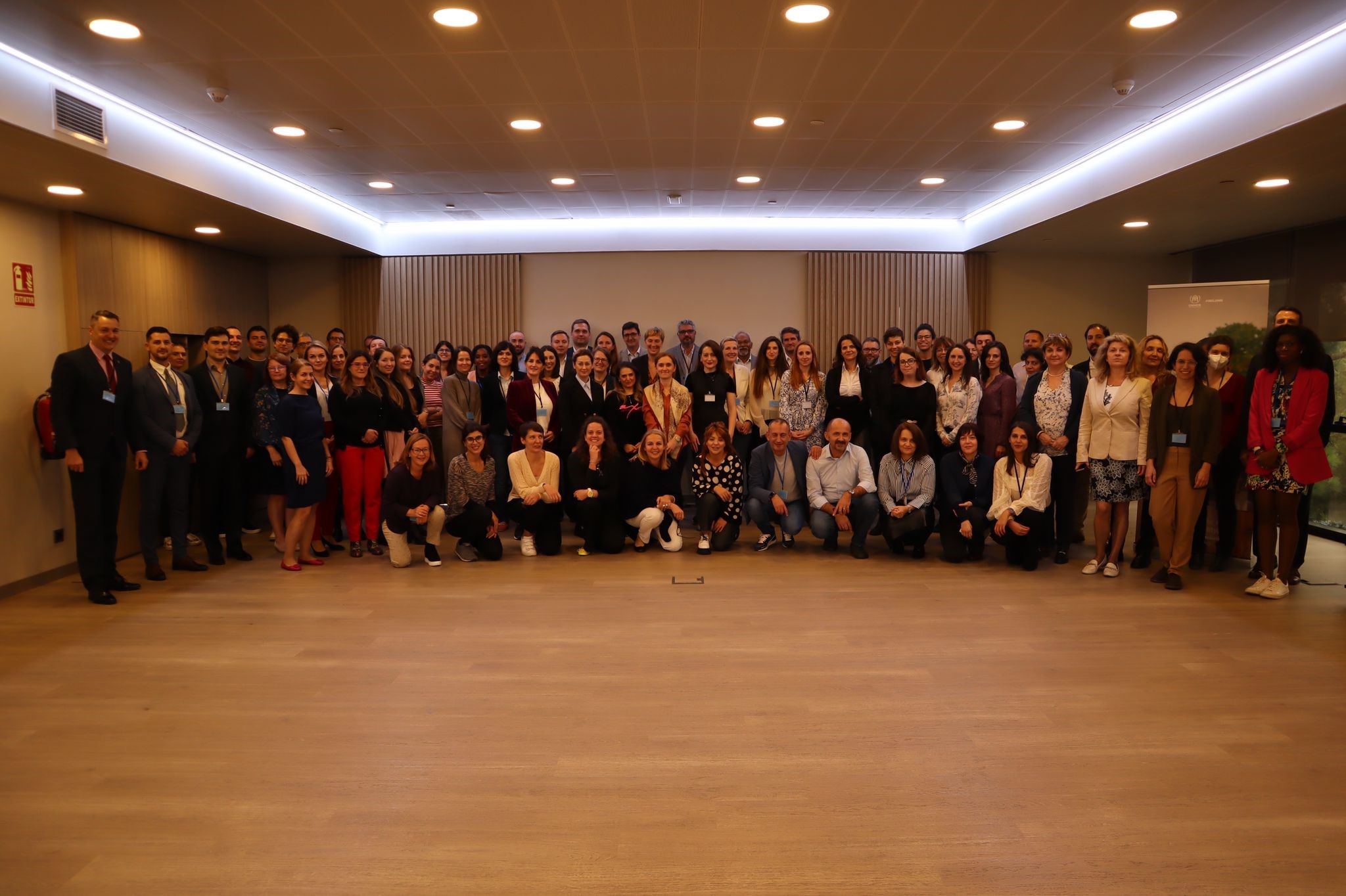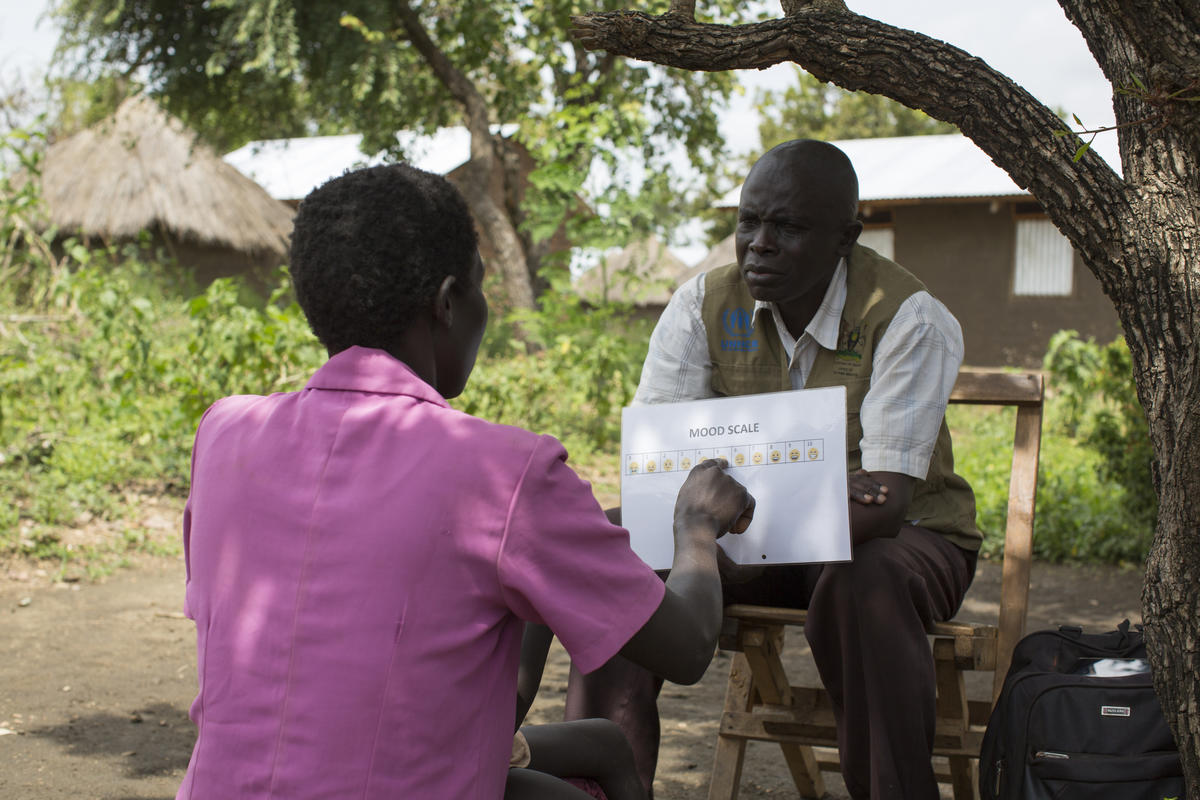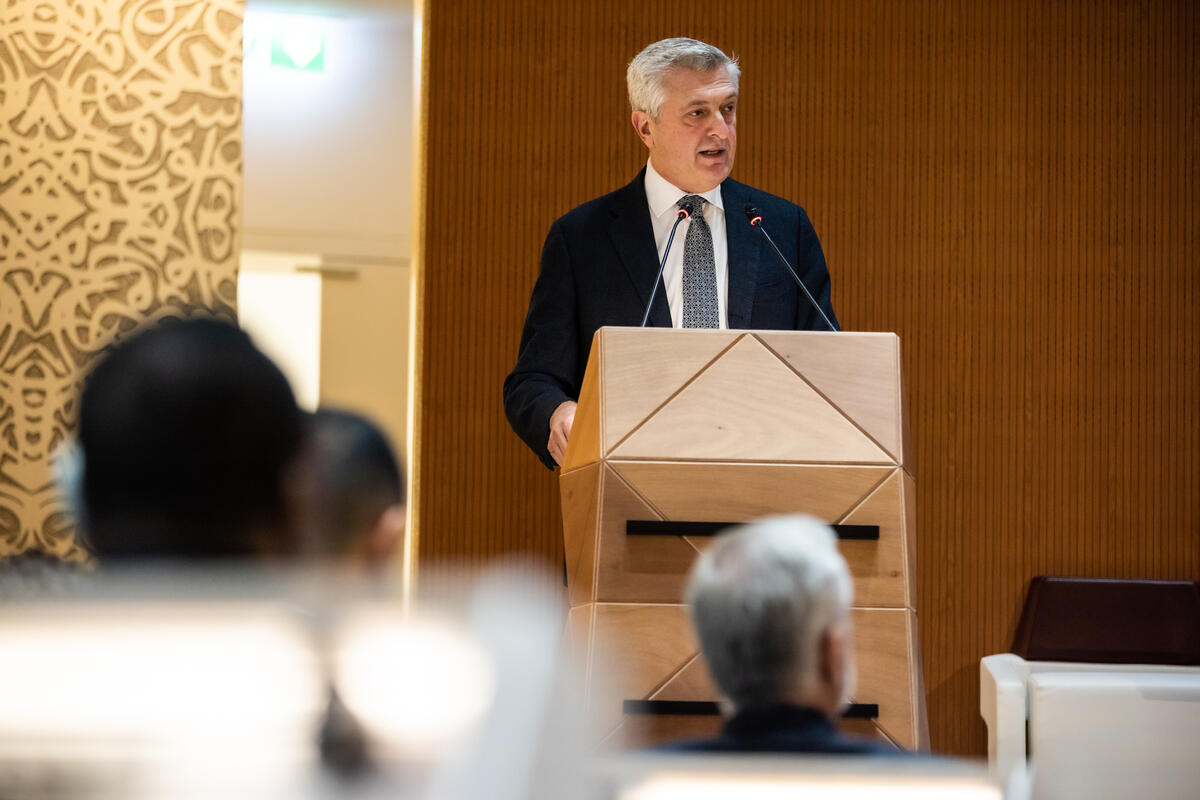'Political will' needed to safeguard 82.4 million displaced – UNHCR protection chief
'Political will' needed to safeguard 82.4 million displaced – UNHCR protection chief

GENEVA – Governments must boost cooperation and redouble efforts if solutions for the millions of people uprooted by conflict and persecution worldwide are to be found, UNHCR’s protection chief said today.
“The international protection crisis calls for urgent global collaboration and, above all, for political will,” the UN Refugee Agency’s Assistant High Commissioner for Protection, Gillian Triggs, told the annual meeting of UNHCR’s Executive Committee in Geneva.
“We have no shortage of laws and policy to protect the displaced [and] we have ample declarations of principle – the challenge is to implement them in practice,” she told the gathering.
At the close of last year, a record 82.4 million women, children and men remained out of their homes due to conflict, violence and rights violations – double the number of a decade earlier – 48 million within the borders of their own countries, and 26.4 million abroad as refugees.
Additionally, Triggs said armed conflicts in Afghanistan, Syria, Myanmar, and Yemen remain unresolved, and new displacements occurred in Mozambique and Ethiopia. Millions more are displaced from Venezuela and South Sudan.
“We have no shortage of laws and policy to protect the displaced – the challenge is to implement them."
The resulting protection crisis has been “exacerbated by poverty, inequality, discrimination, poor governance, and the effects of climate change,” she said, noting that the effects had been especially damaging for women, children and the 12 million forcibly displaced people with disabilities.
Despite the almost universal acceptance of refugee protection norms enshrined in the 1951 Refugee Convention, Triggs noted that 195 countries fully or partially closed their borders on health grounds during the pandemic, and that 64 of them made no exceptions for asylum-seekers. Meanwhile, 39 countries reportedly returned them by force to countries where they face violence and persecution.
As protection needs grew last year, she said some well-resourced nations sought to shift responsibility for asylum seekers by outsourcing their responsibilities to poor and developing countries that already host 90 per cent of the world’s forcibly displaced.
“Instead of equitable sharing of responsibilities, we see responsibility shift to those with the fewest resources to bear it. This is morally, ethically and legally unacceptable and we urge all nations to meet their obligations,” she told the 72nd session of the Executive Committee, which runs through Friday.
Amid record displacement, traditional avenues to finding solutions declined last year. Only a quarter-of-a-million refugees returned in safety to their country of origin in 2020. For those millions displaced in their homelands, returns have also proved impossible where violence continues.
Another mainstay, resettlement, hit a 20-year-low last year – with just 23,000 people given new lives in third countries through UNHCR in 2020. However, Triggs remained optimistic that resettlement will recover in coming months as the pandemic subsides and nations rebuild their capacities.
Amid the ongoing challenges, Triggs noted some clear gains toward keeping millions of displaced people safe, notably through the inclusion of refugees in host countries from Colombia to Lebanon, Tanzania and Turkey, that variously allowed them access to health, housing, education and the right to work.
“Instead of equitable sharing of responsibilities we see responsibility shift to those with the fewest resources to bear it."
“If a displaced person can work, she or he can contribute meaningfully to their host communities, to meet labor shortages, to care for the aged, to work in agriculture, health services and construction, and to enrich all our lives as we've seen in sport with the Olympic Refugee Team, and in art and culture,” she said.
In addition, UNHCR’s efforts alongside partners including peace and development actors, the World Bank and the private sector have also helped support displaced populations and host countries.
While COVID restrictions have limited access to resettlement, Triggs said promising alternative solutions have emerged through “labour mobility, the recognition of professional and other qualifications, education, and community sponsorship.”
UNHCR’s #IBelong campaign to eradicate statelessness by 2024 also made progress. This includes advances in national adherence to the two Statelessness Conventions and efforts to ensure birth registration is available in hospitals and local communities. “But despite these advances in many countries,” Triggs said, “much remains to be done, especially as some have suspended civil and birth registrations during the pandemic, creating backlogs and increasing rather than decreasing the risk of statelessness.”
Triggs also stressed gains stemming from the Global Compact on Refugees and the follow-up Global Refugee Forum in December 2019, where more than 1,400 pledges have led to policies and investments from public and private sources, which have “enduring value in providing practical pathways to solutions.”
“In the two years since the Global Refugee Forum, real progress has been made,” she said, concluding: “There is no doubt that we need to redouble our efforts to give practical meaning to the principle of equitable responsibility sharing that lies at the heart of the Global Compact on Refugees. This is one of the UN Refugee Agency’s key priorities and one that embodies the international principle of solidarity.”









